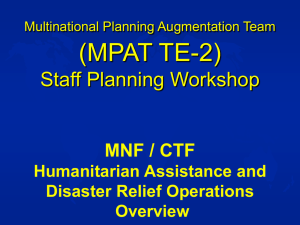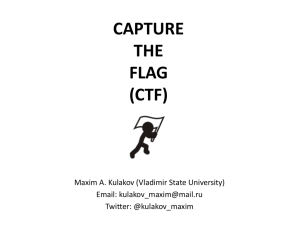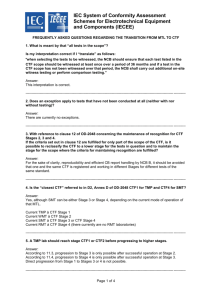Presidents_speech_AGM2012 - Canadian Teachers` Federation
advertisement
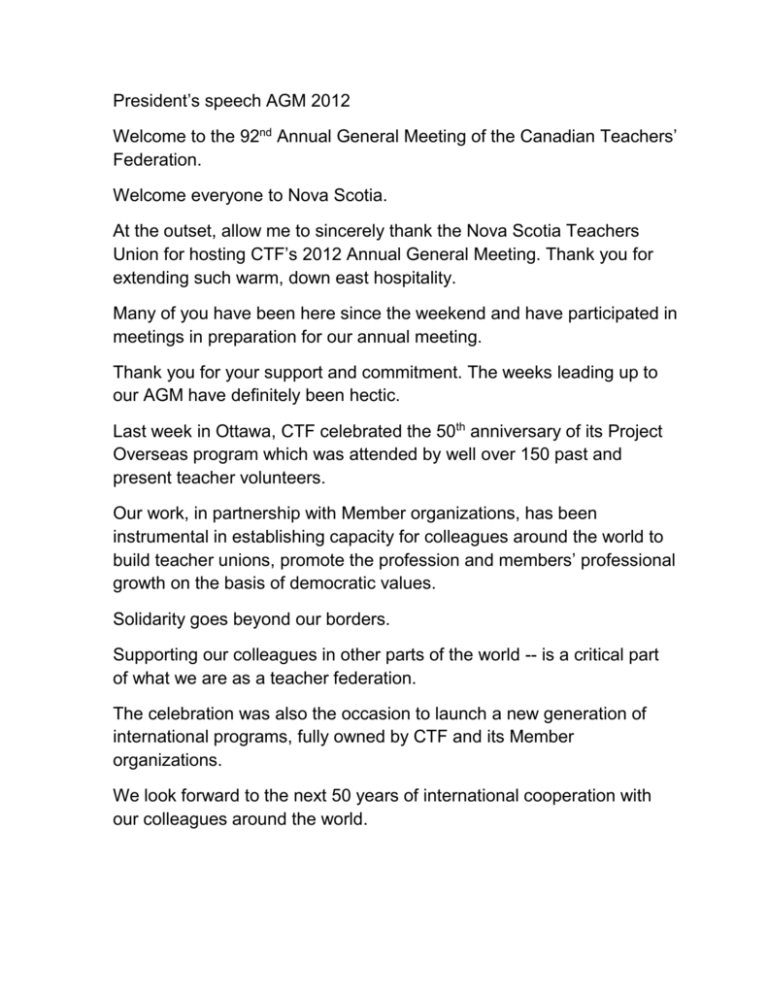
President’s speech AGM 2012 Welcome to the 92nd Annual General Meeting of the Canadian Teachers’ Federation. Welcome everyone to Nova Scotia. At the outset, allow me to sincerely thank the Nova Scotia Teachers Union for hosting CTF’s 2012 Annual General Meeting. Thank you for extending such warm, down east hospitality. Many of you have been here since the weekend and have participated in meetings in preparation for our annual meeting. Thank you for your support and commitment. The weeks leading up to our AGM have definitely been hectic. Last week in Ottawa, CTF celebrated the 50th anniversary of its Project Overseas program which was attended by well over 150 past and present teacher volunteers. Our work, in partnership with Member organizations, has been instrumental in establishing capacity for colleagues around the world to build teacher unions, promote the profession and members’ professional growth on the basis of democratic values. Solidarity goes beyond our borders. Supporting our colleagues in other parts of the world -- is a critical part of what we are as a teacher federation. The celebration was also the occasion to launch a new generation of international programs, fully owned by CTF and its Member organizations. We look forward to the next 50 years of international cooperation with our colleagues around the world. As many of you already know, earlier this week, we held our annual President’s Forum where we explored and examined the myriad of perspectives on education quality. The 360-degree panorama of perspectives also featured the important viewpoints of teachers. This was captured by way of a major research project conducted by the Canadian Education Association in cooperation with CTF. The teacher voice is critical in advancing the goals of public education, the cornerstone of democracy. At CTF’s Annual General Meeting in Whitehorse in 2001, John Ralston Saul said: “You could say that public education is the primary foundation in any civilized democracy. That was one of the great discoveries of western civilization in its modern form in the middle of the 19th century. Any weakening of universal public education can only be a weakening of democracy.” And so this brings us to this year’s theme “Charting a Course for Democracy” which is quite a propos in these interesting times in Canada. Every day, we hear media reports about the latest travesties affecting democracy in Canada – from the infamous robocalls inquiry to US Republican style voter suppression tactics, to the violation of election laws …. We are also witnessing a federal omnibus bill that is not only chipping away at our democratic rights but is attempting to silence the voices of many. Just yesterday, a demonstration was held on Parliament Hill by a group of people who are not prone to holding placards or even organizing demonstrations! Who would have thought that scientists would be invoking an image of the Grim Reaper to take on the Stephen Harper government for what they call the "death of evidence" -- brought about by federal cuts to everything from the long-form census to closure of the Polar Environment Atmospheric Research Laboratory in Nunavut. The budget bill also includes $8 million to fund Canada Revenue Agency audits of charities. This is widely perceived as a move to silence advocacy and free speech on key environmental issues. The same bill further shows the true colours of the federal government as it takes an anti-labour stance which fundamentally changes to the power balance between employers and employees — all to the detriment of workers. So why should this matter? Because it infringes on the rights of citizens to organize, an essential human right according to the United Nations. That right is under attack in Canada. Bit by bit, the foundation of peace, order and good government that has traditionally defined our nation is threatened by the federal government’s reckless measures. Democratic discussion in Canada is being curtailed against a backdrop of an ever-increasing political polarization. This is playing out not just at the federal level, but also in many provinces and territories. The last few years have been very difficult for teachers in Canada and around the world. Continued threats to the integrity of our democratic organizations, threats to collective bargaining, and continued efforts to deprofessionalize teaching have been evident in many jurisdictions in Canada. The financial crisis has impacted public education as governments of all stripes try to balance the books, under the banner of “austerity measures” with what can only be characterized as an attack on the democratic principles that have made Canada a great country. Teachers, however, have shown the way forward. Through the successes of Canadian students on international measures, they have shown that our future in this global knowledge economy remains assured as it rests in the hands of public education and the practitioners who are the experts in teaching and learning. CTF continues to support Member organizations and teachers, and to position the profession on the leading edge of education reform, economic recovery and support for democratic principles. CTF research and advocacy for children have put the Canadian public education in the forefront of progressive systems the world over. Educating our students so that they can become engaged and productive citizens LEADS to a strong democratic nation. CTF therefore believes that it is crucial to hear the teacher voice with respect to challenges in education so that we can collectively find solutions. One of the challenges we’ve heard about from teachers relates to youth mental health issues in Canadian schools. That is why CTF worked in collaboration with the Mental Health Commission of Canada, to further explore these issues by conducting a national online survey of teachers. The over 3,900 teachers who responded to the survey told us that Canadians schools are ill-equipped and under-resourced to adequately support students who experience mental health challenges. In order to support students, teachers indicated that schools need educational assistants, psychologists, psychiatrists and other professionals to support students. Over 96% of teachers indicated they wanted professional development opportunities and that the lack of provision of training could be a barrier to recognizing and understanding mental health issues in children. Additional survey findings regarding pressing mental health concerns show that 9 in 10 teachers identified attention deficit disorders (ADD) and attention deficit hyperactivity disorders (ADHD), as well as learning disabilities such as autism spectrum disorder and dyslexia as pressing concerns. What teachers told us in this survey should be a call to action for all education partners. This survey should help to inform the discussion about the role of schools and teachers in promoting student health and well-being and addressing mental illness. As teachers, we want to be part of the important emerging conversation about child and youth mental illness and mental health. The work on student mental health, as well as the other important work undertaken by CTF and its Member organisations, puts us in position to lead the profession and to engage education stakeholders on critical issues which affect public education. The 2012 AGM is about charting the course for democracy through the work of teacher organizations in support of quality public education in Canada. Instead of allowing right-wing ideology to set the terms of education discourse, we as teacher organizations need to put forward our own values based upon what we know to be beneficial for our students and for society. We will only be successful in this if we act in solidarity. Our activism must involve not only the teaching work force, but the entire teaching community, which includes parents and students. It is not about educating for the 21st century. It is about making the 21st century better for all humankind. The future does not happen to us, we can chart the course for the future. It is our shared vision for public education and our collective solidarity which will help us win the day. I urge you to address the challenges through common strategies, strong approaches and above all, through our solidarity. The Canadian Teachers’ Federation is the only place where the national public education voice is unified. It is essential that we remain committed, focused and strong as we fight to lead the profession and chart the course for the future of public education. We must remember – strength is in our numbers and in our members! Thank you. Merci beaucoup.
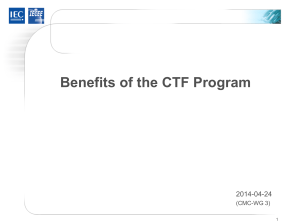


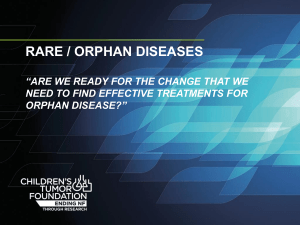



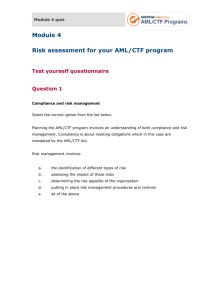
![Cherish the Family [PPT] - National Abandoned Infants Assistance](http://s2.studylib.net/store/data/005476619_1-44768cf7ece3219205cc51da81672e3a-300x300.png)
